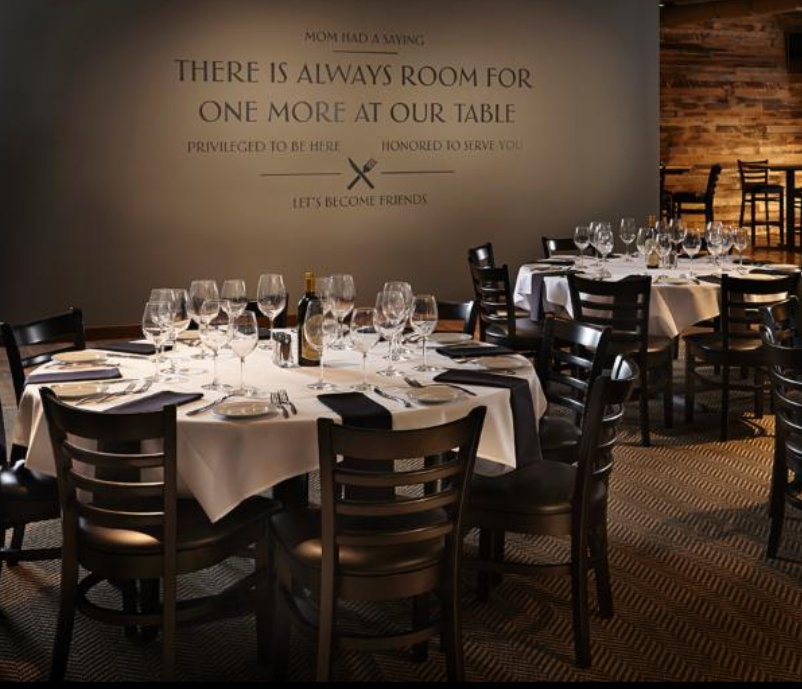It sometimes helps with perspective when you visit another city or state and immerse yourself in their version of your world at home.
For me, of course, it is restaurants, local food, sustainable systems, and the chef entrepreneur. Any one of those topics takes on a different hue when the city is half the size or the state is in a different time zone. A place out of time, like Edisto Island, or a place that embraces a new version of time past, like Cincinnati, provides us with a different look, which in turn provokes different feelings of how and why we do things here.
Lexington is in a transition period, particularly when it comes to restaurants, and the people that own them. Once and forever a place of fast food and corporations, it has started to grow some hometown talent that is actually reaching outside the borders of Central Kentucky.
But are we headed in the right direction? Are we headed in any direction too quickly, or not quickly enough? About a quarter century ago (sounds like ages ago when you put it that way), I attended a City Hall meeting about bringing a new grocery store to Lexington. The meeting included city officials, farmers, and a few restaurateurs whom either felt compelled to come or had an interest in a local foods movement.
I was the executive chef at Dudley’s and went because I felt that there might be some movement toward the local food scene that we needed to be part of. It turned out to be one of the seminal moments of the local food movement. But I can honestly say that 25 years later that movement lacks the impetus required to bring us national recognition.
Rather quietly there have been chefs that prospered with farm to table concepts, but there are no blocks filled with that type of restaurant. There are second generation pioneers who go about their business quietly employing people, cooking great food, and sourcing it locally. But from my decades long perspective we still lag behind so many others and in the end, it hurts our identity to do so.
It’s a refrain that often falls on deaf ears only because there is no shortage of restaurants in town. There is literally something for everyone here and for the most part, if you do a credible job of cooking food, and your service is efficient then business is good.
Single link chains, my term for individuals who start one restaurant followed by several more, have found a niche in Lexington. They usually do a good job of providing employment, good food and drink, and a small sense of local identity. I applaud those entrepreneurs for their fortitude as I know firsthand how hard it is to balance one restaurant.
But there is a certain tenuousness in their endeavors, a combination of running in place and staying a step ahead. I’m all for growth, especially if it is of the local variety, and utilizes the richness of the Bluegrass. But the cost seems steep.
As I mentioned earlier, the individual entrepreneurship aspect of other cities is just starting to blossom here.
Restaurants, breweries, music clubs and food trucks are starting to make a difference and chart a direction for Lexington to follow. It’s odd to say that Manchester Avenue is the new Jefferson Street as we have barely tapped potential there. Without a daytime anchor, say a year-round Farmer’s Market, it may settle into late afternoon, evening and weekend business which would position it right next to Jefferson Street, and Downtown as alternatives, but not necessarily the place to be.
Don’t sleep on Chevy Chase (where The Sage Rabbit currently resides, and others are soon to open) we are turning over the old into a new, and in doing so weaving a new story from old cloth.
Purpose though needs to drive this transition, and it needs to feed the economic engine as well. It can’t be individual wealth, no one gets rich running restaurants.
The value comes in jobs that stretch through local business’s back to local farmers and growers. Money that never leaves the community, it just continues to cycle through, touching the lives of people we know, and us as well. And it needs to connect to the community that is at once immediate (our neighborhoods), but also one right next door that might be totally foreign to us.
Only then will that original city council meeting a quarter century ago will make sense, and have some closure. It wasn’t really about a grocery store, but mostly about what and who Lexington would be when it finally grew up. I’m more confident now that I have my answer, l can’t wait to see if I’m right.
John Foster is an executive chef who heads the culinary program at Sullivan University’s Lexington campus. A New York native, Foster has been active in the Lexington culinary scene and a promoter of local and seasonal foods for more than 20 years. The French Culinary Institute-trained chef has been the executive chef of his former restaurant, Harvest, and now his Chevy Chase eatery, The Sage Rabbit, in Lexington.



























